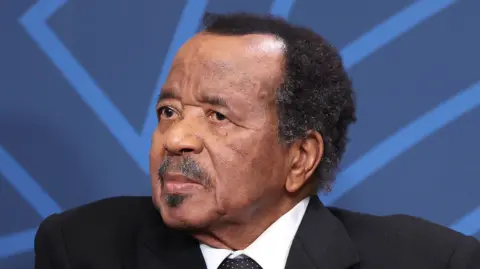91-year-old Cameroonian President Paul Biya has defied all odds to be Africa’s oldest and the second longest-serving head of state.
Despite several rumours of his death having popped up over the years, Paul Biya still rules strong, managing to hold Cameron together.
The wellbeing and whereabouts of Paul Biya has become a hot topic across Africa this week.
Paul Biya missed the UN General Assembly in New York after attending the China-Africa summit in Beijing in early September.
But when he stayed away from this week’s summit of French-speaking countries (La Francophonie) at Viller Cotterêts, north of Paris, the rumour mill went into overdrive, as he had not been seen in public for about a month.
Cameroon’s ambassador in France insisted that Biya was “in good health” and in Geneva – his habitual base when away from home.
Other sources suggested this was because he needed to rest under medical supervision after a heavy diplomatic schedule in July and August.
Government spokesman, René Sadi, issued a formal denial of the rumours, clarifying he (Paul Biya) was in good health, adding that the president would return home “in the next few days”.
And the head of the president’s private office, with him in Geneva, also said he was “in excellent health”.
Cameroon occupies a key strategic location, as the gateway to landlocked Chad and the Central African Republic (CAR). Apart from struggling to fully suppress jihadist violence around Lake Chad, it also wrestles with a complex and often violent crisis in its English-speaking regions.
In leading the response to these challenges, Biya has brought an unusual personal style that often eschews the front of the stage, without any apparent personal need to engage in diplomatic presenteeism or performative summitry.
Rumours that he has died do surface fromi time to time, largely because of these unannounced disappearances from the scene.
But this low-key style belies the determination with which he contrived his arrival in power in 1982, elbowing aside his patron and predecessor Ahmadou Ahidjo, promising liberalising change before entrenching a hold on the presidency that no subsequent challenger or campaign of protest has managed to shift.

